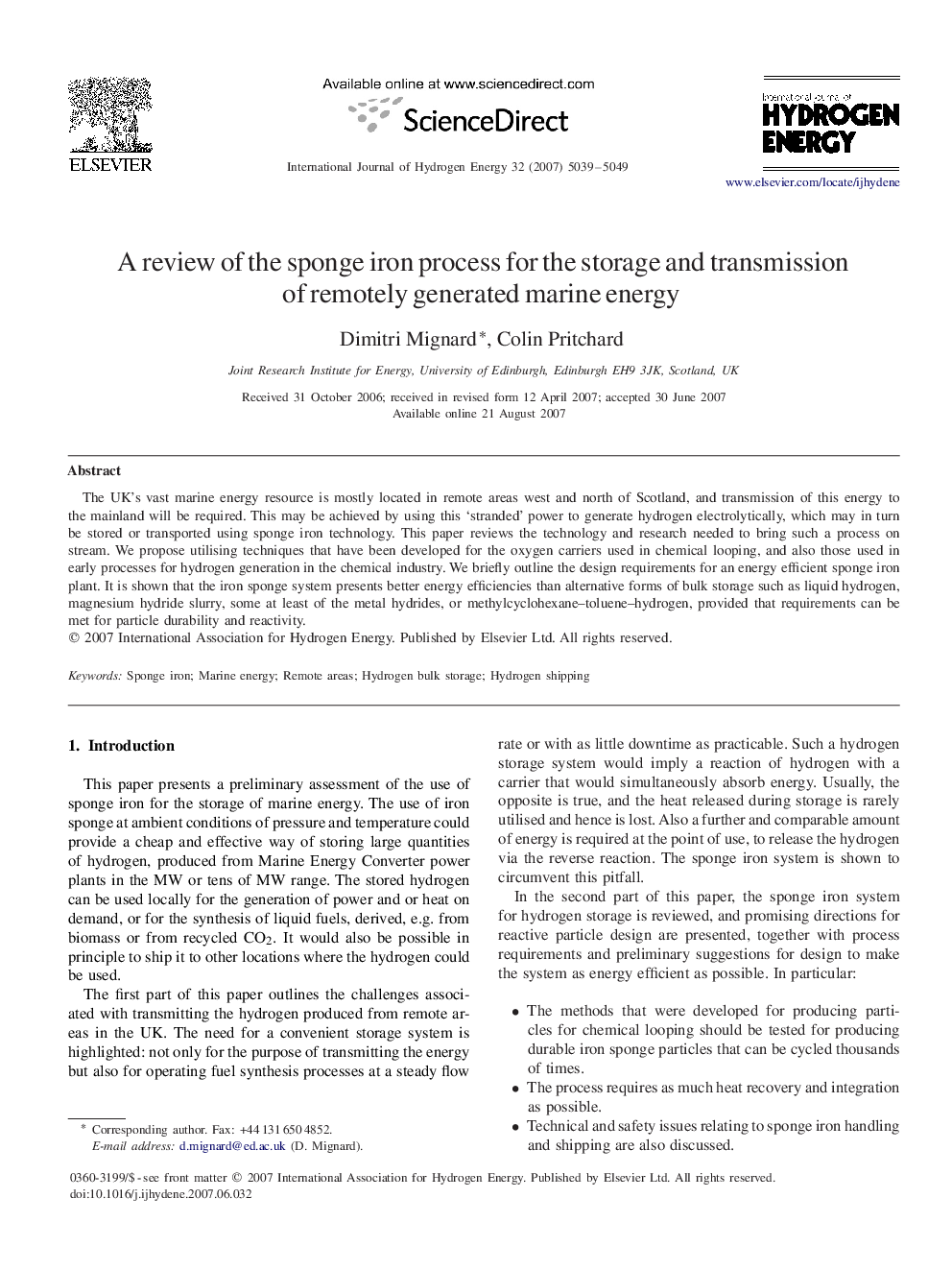| Article ID | Journal | Published Year | Pages | File Type |
|---|---|---|---|---|
| 1283799 | International Journal of Hydrogen Energy | 2007 | 11 Pages |
The UK's vast marine energy resource is mostly located in remote areas west and north of Scotland, and transmission of this energy to the mainland will be required. This may be achieved by using this ‘stranded’ power to generate hydrogen electrolytically, which may in turn be stored or transported using sponge iron technology. This paper reviews the technology and research needed to bring such a process on stream. We propose utilising techniques that have been developed for the oxygen carriers used in chemical looping, and also those used in early processes for hydrogen generation in the chemical industry. We briefly outline the design requirements for an energy efficient sponge iron plant. It is shown that the iron sponge system presents better energy efficiencies than alternative forms of bulk storage such as liquid hydrogen, magnesium hydride slurry, some at least of the metal hydrides, or methylcyclohexane–toluene–hydrogen, provided that requirements can be met for particle durability and reactivity.
